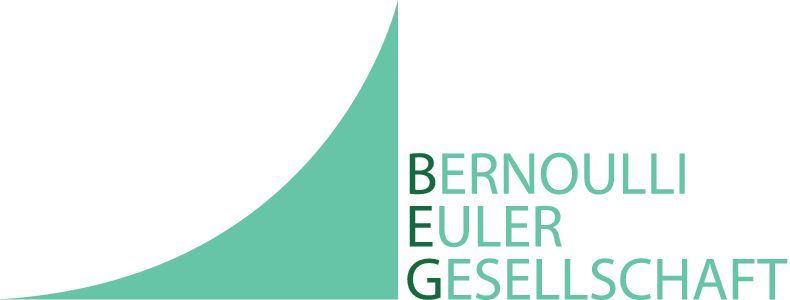Bibliographical scetch of Leonhard Euler
by Emil A. Fellmann
Formation and Training
1707 Born 15 April in Basel, the son of the Protestant minister Paul Euler and Margaretha Brucker.
1720 Leonhard entered Basel University, which was founded in 1460. Initially he studied theology, Oriental languages and history, but soon switched to mathematics under Johann I Bernoulli (1667-1748), who became the world's most noted mathematician following the death of Isaac Newton (1643-1727). Quick to recognize Euler's mathematical genius, Bernoulli challenged him by having him read the works of the masters, and especially by instructing him personally in contemporary mathematical research.
First Petersburg period
1727 Euler's thesis titled De Sono (On Acoustics) formed the basis for his application for a post as professor of physics in Basel, but he was passed over on account of his youth. Through the help of the Bernoullis, he was offered a position in St. Petersburg at the Academy of Science, founded by Peter the Great in 1725. There he worked first as assistant professor, then from 1730 as professor and member of the academy (he had no teaching commitments, though he did write a textbook on elementary mathematics). The principal contributions of this early Petersburg period include a two-volume work on mechanics, a book on music theory and Scientia navalis (about hydrodynamics, shipbuilding and navigation), which was eventually published in 1749.
1734 At the beginning of January, Euler married Katharina Gsell, a daughter of the Swiss painter George Gsell, who was working in St. Petersburg. Euler's son Johann Albrecht was born at the end of November, the only one of his offspring to follow in his footsteps as a mathematician and member of the Academy. Only three of Euler's thirteen children would survive him. He had twenty-one grandchildren.
1738 As a result of a severe abscess, Euler lost the sight of his right eye.
Berlin years
1741 Conscious of the political turmoil in the Russian empire, Euler accepted Frederick II's offer of a professorship at the newly established Prussian Academy ("Berlin Academy") and settled with his family in Berlin. There he held a position as director of the mathematics department. Maupertuis, who in 1736-1737 made a name for himself in a famous expedition to Lapland (the purpose of which was to determine whether the Earth was indeed an oblate spheroid) became president of the Academy, though as a scientist, he ranked far below Euler.
In addition to hundreds of treatises written during the Berlin period, Euler produced major works on the calculus of variations, the theory of special functions, differential equations, astronomy as well as a second masterpiece on mechanics and a popular work on physics and philosophy titled Lettres à une princesse d'Allemagne. The basic outline of his celebrated work on algebra also dates from the Berlin period. During this time, Euler maintained active connections with the Petersburg Academy, and he helped to promote interactions between the two internationally renowned academies. Euler was a member of all the important academies of his time and received many awards.
Second Petersburg period
1766 Frederick II's bumbling was influential in Euler's accepting an offer from Catherine the Great to return to St. Petersburg, where he remained until his death.
1771 In the aftermath of a failed cataract operation, Euler lost the sight of his remaining good eye and soon became nearly totally blind. During the great St. Petersburg fire, he was barely saved from his burning house by the Basler artisan Peter Grimm. Yet, amazingly, his productivity increased: approximately half of his prodigious output occurred during this second Petersburg period, including three-volume works on integral calculus and optics (Institutiones calculi integralisand Dioptrica) as well as the authoritative version of his work on algebra.
1773 Following the death of his wife Katherina, in 1776 Euler married her half-sister Abigail Gsell.
1783 On 18 September Euler suffered a stroke and died quickly and painlessly.
